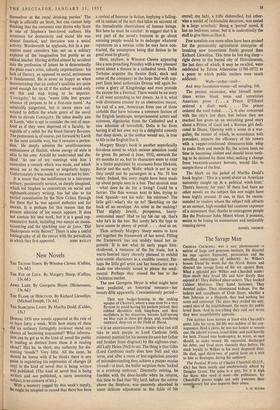The Savage Man
CHARLES CHURCHILL was a rare phenomenon—a satirist of large and generous instincts. He directed his rage against hypocrisy, persecution and the snivelling subterfuges of authority. As Wilkes's bosom friend he wrote for the North Briton and directed the savage force of his wit against Bute. What a splendid pair Wilkes and Churchill made! How much they loved life and how deeply they enjoyed it! They disliked place-seekers. They loathed Cabinet Ministers. They hated Scotsmen. They detested judges. They abominated bishops. For the lackeys and sycophants of Grub Street, whether a Sam Johnson or a Hogarth, they had nothing but scorn and contempt. The more they reviled the safe, sound men of the establishment, the more the public loved them. And in everything they said and wrote they were magnificently apposite.
Few satirists have written or lived with Churchill's gusto. Like his verse, his life was reckless of the con- sequences. Bred a cleric, he was too honest to remain one. He adored women, loved drink, and paid heavily for both. Forced into bankruptcy, he wrote, as men should, to make money. He succeeded, discharged his debts, and lived more riotously than before. He stuck loyally to Wilkes in his most desperate days. He died, aged thirty-two, of putrid fever on a visit to him at Boulogne, during his outlawry.
The Poetical Works of Charles Churchill (O.U.P., 63s.) has been neatly and unobtrusively edited by Douglas Grant. The price is a pity, for it is high for those who need it most—the politicians, for Churchill's poems might not only puncture their complacency but also improve their abuse.
J. H. PLUMB


































 Previous page
Previous page